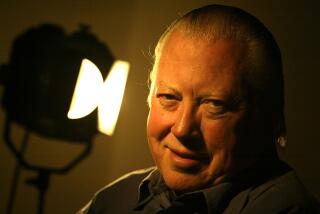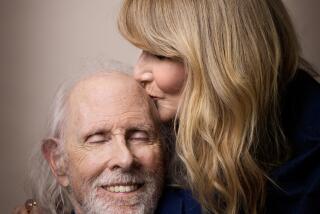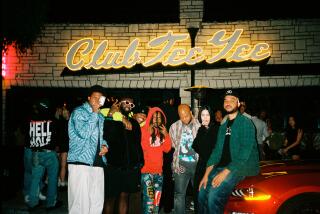Fred Weintraub, who financed ‘Woodstock’ and helped discover Bruce Lee, dies at 88
- Share via
Were it not for the renegade work of club owner, Hollywood producer and self-described showman Fred Weintraub, the lives of Bruce Lee, Frankie Valli, Neil Diamond, Richard Pryor and Woody Allen, to say nothing of the mud-encrusted hippies Weintraub captured in the film “Woodstock,” might have taken other turns.
Weintraub died Sunday, leaving a legacy that included founding the storied New York folk and comedy club the Bitter End, green-lighting a music festival shoot that became the documentary “Woodstock” and signing the young martial arts expert Lee to star in the Weintraub-produced movie “Enter the Dragon.”
For the record:
1:27 p.m. April 25, 2025Correction: The original caption in a photo of the Bitter End misidentified the person in it. The photo is of a young Neil Diamond and not, as originally written, Fred Weintraub.
He died of natural causes after living with Parkinson’s disease, wife Jackie Dubey-Weintraub said.
Across his 88 years, Weintraub experienced a lot of adventure, and although much of it was behind the scenes, his mark on culture runs deep.
“From the mean streets of Fort Apache, the East Bronx,” he wrote in “Bruce Lee, Woodstock and Me,” his rollicking 2012 autobiography, “to an island fortress in Hong Kong; from a Cuban jail cell shared with cockroaches, to a stroll down the red carpet at Cannes shared with the Beatles, I’ve pretty much seen it all. Or at least as much as any nice, Jewish, Ritalin-deprived Depression baby could ever hope to see and do.”
Fred Robert Weintraub was born in the Bronx in 1928, the only son of parents who owned and operated two baby furniture stores. Weintraub, who had two sisters, inherited that appetite for retail.
After attending the Wharton School of Business, he took over the family’s Darling Furniture and Toy company, where the driven entrepreneur expanded the business to 50 stores and sold it in the late 1950s. Cuba was calling, so he made a foray to Havana. He landed a gig playing piano in a house of ill repute.
While there, Weintraub recounted being arrested and falsely accused of gun-running. He spent a few days in jail and upon release, eventually returned to New York City. Greenwich Village was a center of youth culture at the time, and Weintraub needed “a way to burn up the restless energy that had plagued me since childhood,” he wrote in his autobiography, which was co-authored with David Fields. He took over the lease on a little Village coffeehouse that he renamed the Bitter End.
Among those who performed at the Bitter End when Weintraub owned it were Joni Mitchell, Bob Dylan, George Carlin, Bill Cosby and Joan Rivers. On their debut album, the folk trio Peter, Paul & Mary posed in front of the Bitter End’s famous brick wall, an iconic backdrop that has since become the de facto standard for comedy clubs.
“My earliest memory of the Bitter End,” Allen said in “Bruce Lee, Woodstock and Me,” “is that people told me it was a place for young people starting out, particularly at the Tuesday night Hootenanny. I went over, and Fred, who looked like a character who stepped out of a Russian novel, was instantly very warm, friendly and encouraging.”
Weintraub sold the Bitter End and started producing for TV, where his early successes include creating the seminal music series “Hootenanny.”
When his friend Ted Ashley became the head of Warner Bros. film studio, Weintraub was hired as an executive in charge of production. “After ‘Easy Rider’ did so well, they wanted to hire someone with a ponytail down to his behind,” he told Variety in 1994.
Weintraub fit the bill, and the hire paid off. One of Weintraub’s first projects for the company was helping to finance “Woodstock” after being contacted by desperate festival organizers who needed film gear but were running out of money. According to Weintraub’s account in the New York Post, Warner Bros.’ $500,000 investment helped “Woodstock” earn $32 million during its theatrical run.
He had found his calling. After producing the George C. Scott vehicle “Rage,” Weintraub set his sights on the kind of martial arts movies earning profits in Hong Kong. With a script in hand and looking to adapt that action for American audiences, Weintraub cast the young martial arts instructor Lee.
The film, “Enter the Dragon,” went on to gross more than $100 million worldwide, according to Variety. Tragically, Lee died a few days after the film’s release.
But Lee and Weintraub had tapped an emerging market. During the American premiere of “Enter the Dragon,” Rob Cohen, a director and producer, told the Sunday Mail that the turnout at Grauman’s Chinese Theatre was notable. “The audience looked like they had emptied all the jails. It was the most street audience I’d ever seen.”
Weintraub left Warner Bros. to become an independent producer for both TV and film, and saw success with projects including the David Carradine vehicle “Kung Fu” and “The Dukes of Hazzard.” Long a believer in shoestring budgets, Weintraub decried the excesses of the Hollywood system while making films including “Black Belt Jones,” “Force: Five,” “Under the Gun” and “High Road to China.”
In the early 1990s, Weintraub and his wife, Jackie, helped build Lithuania’s film industry after the fall of the Soviet Union. Seeking a budget-conscious location to shoot the series “The New Adventures of Robin Hood,” the pair opened a door that producers continue to use decades later.
Weintraub’s experiences, especially after turning independent, led him to make a prescient prediction to the Creator’s Project in 2012. “In five years, there’ll be 10 million people paying $2 to see a new movie on its first night on the Internet,” he said.
“I found the business fun,” he added. “It’s still fun.”
In addition to his wife, Weintraub is survived by two daughters, Sandra and Barbara, and two sons, Max and Zachary.
For tips, records, snapshots and stories on Los Angeles music culture, follow Randall Roberts on Twitter and Instagram: @liledit. Email: randall.roberts@latimes.com.
More to Read
The biggest entertainment stories
Get our big stories about Hollywood, film, television, music, arts, culture and more right in your inbox as soon as they publish.
You may occasionally receive promotional content from the Los Angeles Times.











